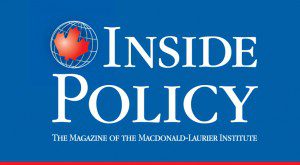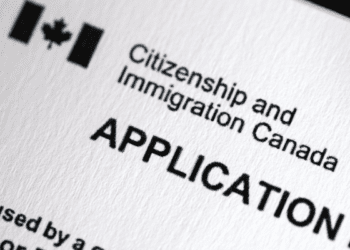We need to learn from the Toronto van attack in order to help prevent such attacks in the future, writes Scott Newark.

By Scott Newark, June 4, 2018
Alek Minassian, the man accused in the April 23rd Toronto van attack, appeared in court recently to face new charges following identification of additional victims. Minassian now faces ten counts of first degree murder and sixteen counts of attempted murder. Canadians remain understandably shocked at the savagery of the attack and are now interested in how the prosecution will unfold.
The criminal case against Miniassian is obviously very strong. The case will either be resolved by guilty pleas, a criminal trial, or the defence pursuing a verdict of ‘Not Criminally Responsible’ (NCR) pursuant to s. 16 of the Criminal Code. For the NCR defence, they will need to establish that, because of a mental disorder, he was unaware of what he was doing or that it was morally wrong. It has essentially become that the horrific nature of the crime is the defence. But, given the clear and specific evidence against Minassian, it is hard to imagine that it will be successful. That doesn’t mean that it won’t be advanced, however, so the public will need to stay tuned.
Are there lessons to be learned from this case?
Any time an incident such as the Toronto van attack occurs, it is also advisable to objectively analyse what happened and, most importantly, determine whether there are lessons that can be learned from the incident to help prevent such attacks in the future. Two key principles need to be prioritized in this effort. First, the object of the exercise is to identify possible better preventive actions and not to point fingers and assign ‘blame.’ Second, given the complexity of the threat, it is unlikely that a single ‘solution’ exists, which means different security contributing measures are desirable. The bureaucratic mindset that ‘I can’t do anything until I can do everything’ must be avoided and rejected.
Lone wolf and no copycats
After these attacks, one of the first priorities of law enforcement and national security and intelligence officials is to assess whether the attack is part of a larger plan and whether it will inspire unconnected ‘copycat’ attacks. This was part of the response to the Toronto attack. Fortunately, no other attacks took place, although one other Incel online ‘member’ was noted to have praised Minassian for his actions. This post-incident analysis and potential proactive strategy must be continued.
Develop better political communications
In the immediate aftermath of the attack, Public Safety Minister Ralph Goodale commented that the events “do not appear to be connected in any way to national security.” Minister Goodale was almost certainly referring to the fact that the attack was not Islamist-inspired or directed. Most people had initially assumed it was, since the method of the attack was identical to what has been directed and carried out by Islamist terrorists. Given that the attack was, in fact, seemingly inspired by an anti-social ideological group targeting women and gender equality societal principles, and that it resulted in multiple civilian deaths in a public space, there are legitimate public safety and security concerns that should not be minimized. Political leaders will be called on for public comment should such incidents re-occur and those remarks should focus on the efforts to identify those responsible and to guarantee the commitment to ensuring public safety and security.
Recognize the scope of the potential new threat
Perhaps the most significant aspect of the Toronto attack was that a previously unrecognized threat adopted the Islamist terrorist methodology to achieve its goals. In this case it appears to be a narcissistic, self-entitled group of men that find validation through social media. This new online social reality must be considered going forward. There are definitely ideologically driven groups who possess the same kind of self-entitlement and arrogance.
Now we know about Incel. What other groups are there that share this kind of ideologically-driven agenda fueled by social media that has the potential for some or even one of its members to take violent action to advance the ‘cause’? As Frontline Security’s Chris MacLean put it in her recent op-ed on the attack, “I was shocked to hear there is a thriving social group for men who are angry that they cannot get laid. Involuntary celibates? Really?”
If a motivation as vacuous as Incel can contribute to this kind of horrific attack, what about environmental groups (pro and anti); anarchists, anti-Semitic and anti-Muslim groups, right wing or white extremists, the antifa crowd, Black Lives Matter and their opponents, or anti-immigrant groups?
Determining if these groups or their members pose a potential threat will be a challenge for public authorities given the legitimate rights to free speech and privacy. The fact that these communications include public postings on social media sites will likely facilitate such analysis and ensure that a judicially authorized follow up authority will also be necessary. This is a new threat and it requires a careful balancing of interests as well as fact-based and justifiably targeted applications. Given the issues involved, this may be an area best led by Criminal Intelligence Services Canada (CISC) and its local offices.
Review existing tools
It will be advisable to review the existing legal ‘toolbox’ to see if the existing provisions are suitable to deal with this potential new threat. This could include:
- Are existing inciting hatred/propaganda provisions sufficient? The definition of ‘identifiable group’ in s. 318(4) has been amended over the years and is likely sufficiently inclusive to deal with these new circumstances.
- Are terrorism related definitions/offences sufficient? As noted above, the penalty provisions in the Criminal Code may suffice (including s.83.27 which creates a potential life imprisonment sentence for an indictable offence that is also ‘terrorist activity’). But it may be advisable to specify that engaging in ‘terrorist activity’ is itself a crime, whether or not it’s done in support of a terrorist entity or not. This issue was identified in the recent acquittal (and NCR finding) in the Ayanle Hassan Ali case involving an Islamist inspired attack at a military recruiting centre in Toronto. The current definition of ‘terrorist activity’ in s. 83.01(1)(b) appears sufficient.
Attention should also be given to the capabilities of authorities to get judicial orders on appropriately defined grounds to take down unlawful content on websites or on social media. This will require examination of current s. 320 (hate propaganda) and 83.221 (advocating or promoting commission of terrorism offences), the latter of which is up for revision in Bill C-59 where it unwisely raises the evidentiary standard for prosecution.
The Minassian case has revealed an evolved potential ideological and violent threat against public safety and security in Canada. Therefore, the legal framework for detection and proactive prevention must also be reviewed to ensure an appropriate balancing of interests to achieve the necessary targeted measures to address the unfortunately increased potential threat.
Social media issues
In addition to legal tools (preventive and prosecution), the fact Minassian was part of a social media group should also be specifically considered from the context of possible preventive measures that could be taken in the future. These potentially include:
- Analysing the case circumstances to assess the impact on Minassian acting as he did;
- Assessing the ‘entitled’ behavioral attitudes of Incel members and whether it was fostered by social media;
- Determined what ‘triggered’ the attack and if it was discernible;
- Assessing if these ideological, social media-based groups can be identified, monitored and deradicalized or talked down through human interaction and counselling;
- Identifying other groups that have members (living or deceased) who advocated or engaged in violence as was the case with Incel and its idolized ‘Supreme Gentleman’ (and mass killer) Elliot Rodger;
Other Measures
These attacks on civilian populations in Mass Population Venues (MPV) are a deliberate tool undertaken by ideologically motivated groups with the specific intent of maximizing casualties, avoiding pre-attack detection, reducing ‘expertise’ required for the attacker, and heightening public fear because of the continuing at-risk circumstances inherent in Western societies. As such, preventive measures must be targeted at recognized actions (see above) and as minimally intrusive on the free movement of persons and activities in our society. Once again, the necessary measures may not, by themselves, guarantee no further attacks but they may assist in preventing one which is the appropriate metric of ‘success’ in this new challenge that we face. Among the measures worth examining are:
- Continuing to deploy vehicle access restrictions in specific identified MPV locations;
- Deploying drone detection, tracking and takedown capabilities for outdoor accessible MPVs (stadiums, events, etc.);
- Implementing a vehicle rental screening system so persons seeking to rent vehicles are checked against a security threat database (similar to what is currently being implemented in the EU).
Conclusion
The fact that an individual from a non-Islamist and non-identified but ideologically motivated online group would choose to adopt an Islamist terrorist attack method to carry out a murderous mass casualty attack against civilians in Canada has been, and remains, shocking to all Canadians. It is also the new reality that must be addressed as best we can to try and prevent it happening again.
Scott Newark is a former Alberta Crown Prosecutor who has also served as Executive Officer of the Canadian Police Association, Vice Chair of the Ontario Office for Victims of Crime, Director of Operations for Investigative Project on Terrorism and as a Security Policy Advisor to the governments of Ontario and Canada. He is currently an Adjunct Professor in the TRSS Program in the School of Criminology at Simon Fraser University.




